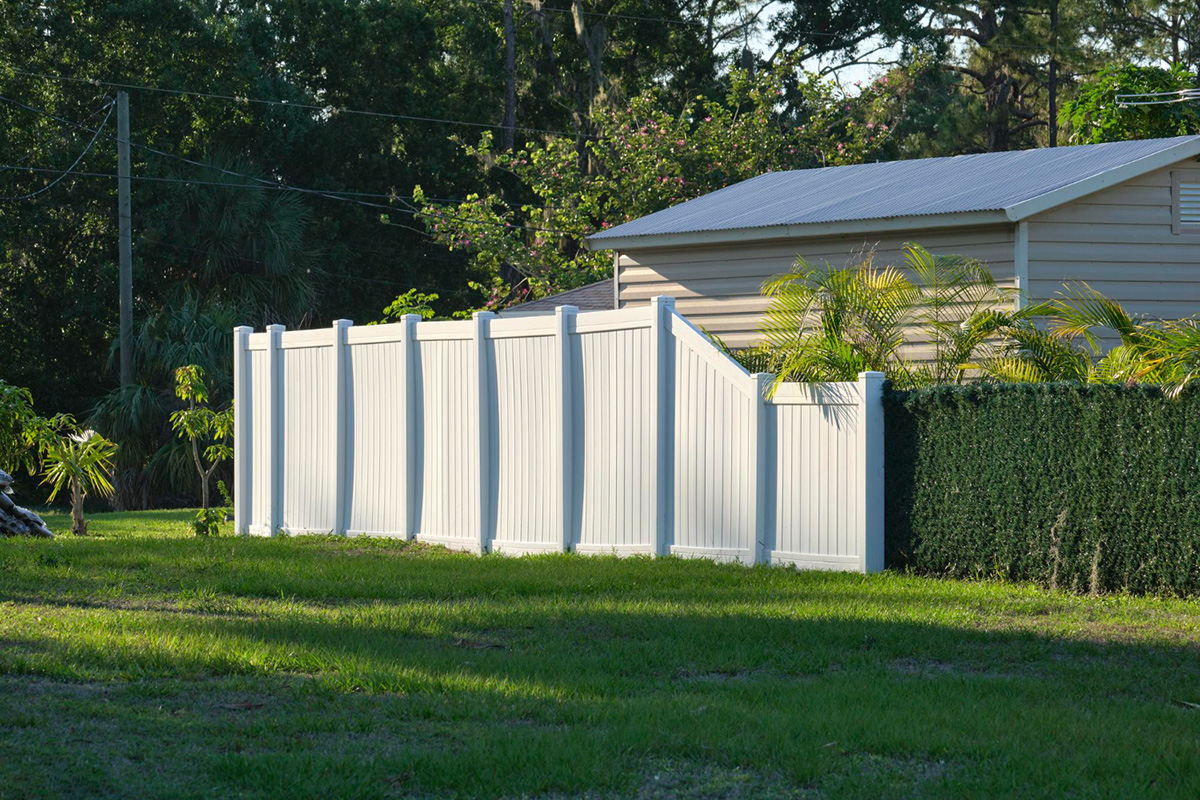Answers to Your Frequently Asked Questions about Vinyl Fencing

Are you planning to install a fence around your home for privacy, aesthetic appeal, and security? If so, you may have questions about various fence materials, sizes, designs, installation, and maintenance. In this blog post, we answer some of the most frequently asked questions about vinyl fencing. We hope that our answers will help you make an informed decision and choose a fence that meets your needs and budget.
What is vinyl fencing, and why is it popular?
Vinyl fencing is a type of fencing material made of polyvinyl chloride (PVC). It's popular because it's durable, low-maintenance, easy to install, and versatile. It comes in a variety of colors, designs, and sizes, which can mimic the look of wood, iron, and other traditional fence materials. Vinyl fences don't require regular painting or staining, and they are resistant to rot, fading, and cracking.
How long does vinyl fencing last?
Vinyl fencing can last for decades, depending on the quality of the material and the installation. A well-constructed and maintained vinyl fence can last up to 30 years or more. It's essential to choose a reputable manufacturer and hire an experienced fence contractor to ensure the longevity of your fence. Additionally, cleaning your fence periodically can enhance its lifespan.
Is vinyl fencing safe for pets and children?
Yes, vinyl fencing is safe for pets and children. It's a non-toxic and eco-friendly material that doesn't contain sharp edges, splinters, or harmful chemicals. Vinyl fences are also easy to clean and disinfect, which can prevent the growth of mold, bacteria, and other contaminants. Moreover, vinyl fences can provide a secure and comfortable space for your pets and children to play and relax.
How much does vinyl fencing cost?
The cost of vinyl fencing varies depending on the type, size, design, and location of your fence. On average, vinyl fences can cost between $20 and $50 per linear foot, including labor and installation. Some factors that can affect the cost of vinyl fencing include the terrain, soil conditions, permitting, and additional features such as gates, post caps, and decorative elements. It's essential to get a detailed estimate from a professional fence contractor to avoid hidden costs and surprises.
How can I maintain and clean my vinyl fence?
Maintaining and cleaning your vinyl fence is relatively simple and doesn't require much effort. You can clean your fence with a mild soap and water solution or a specialized cleaner designed for vinyl fences. Always avoid using harsh chemicals or abrasive tools that can damage the surface of your fence. Additionally, you can trim any overgrown plants or vines around your fence to prevent staining and discoloration.
Conclusion:
Vinyl fencing offers numerous benefits to homeowners, including durability, low-maintenance, safety, and flexibility. By reading this blog post, you should have a better understanding of what vinyl fencing is, how long it lasts, its safety features, its costs, and its maintenance tips. If you're seeking for fencing contractors in Jacksonville, contact Masters Fence Contracting to get your free quote and professional consultation. We have years of experience in installing vinyl fences and can help you choose the right fence design and size that meets your specific needs and tastes. Thank you for reading, and happy fence shopping!